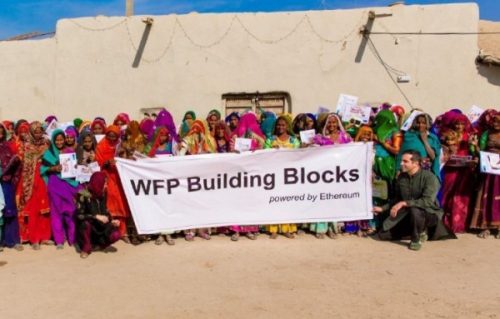Pakistani Hunger Issues Alleviated by UN Blockchain Technology
Ethereum blockchain technology has been successfully used by the UN’s World Food Program for aid distribution in third world countries like Pakistan.

Rawalpindi, Pakistan – December 2, 2017 /PressCable/ —
Despite the controversy with blockchain cryptocurrencies in the world today, and with a huge majority of governments still to take a stance on blockchain digital currencies, the UN at least has seen its full potential for helping starving families in the remotest of areas. Due to the versatile nature of blockchain technology, the UN has been able to put into action a successful network of food aid in third world countries, through its World Food Program.
The World Food Program is currently working hard to fight against hunger and malnutrition; bringing aid to the hungry population in developing countries worldwide, by using the Ethereum blockchain system. The Ethereum system is a decentralized platform which can run smart contracts. A smart contract is literally a computer protocol, which will help to facilitate, verify and conclude the negotiation of a contract between 2 or more parties.
The UN pilot program, known as “Building Blocks”, has already demonstrated its capability successfully by enabling the World Food Program to quickly and safely deliver the necessary aid to those in need. While being tested in Pakistan, the UN program has supplied food, cash assistance for sustenance needs as well as supplying necessary aid to the needy. Up til now, sending cash assistance has always been complicated for the UN, due to the lack of transparency, corruption accusations, and the misuse of funds. But now, thanks to the transparency and immutability that comes with blockchain platforms such as Bitcoin and Ethereum, things have suddenly become a lot easier for the World Food Program to deliver on its promises.
According to recent reports, the UN pilot program in Pakistan’s Sindh province has seen the successful distribution of both food and cash, which has been officially verified on a public blockchain. According to their people on the ground, the use of blockchain technology in the WFP has actually introduced their accountability over the whole process. According to WFP official Farman Ali from the Karachi province, Blockchain could revolutionise the process in which WFP delivers food aid to vulnerable families right across the globe.”
Helping people in need in Pakistan is something that another cryptocurrency is also aiming to do. Pakcoin, which is based on Litecoin, is Pakistan’s “official” cryptocurrency. In order to help those Pakistanis without access to normal banking, an airdrop project has been initiated which allows for 150,000 Pakistanis to receive 50 free Pakcoins. The founder of Pakcoin, Mr Abu Shaheer, recently spoke about the success of their Airdrop project, while also praising the UN for taking such a bold decision to introduce blockchain technology to help in the most noble of causes. He said he hoped that more governments would also make the right decision of introducing total transparency and security to their international transactions through blockchain technology, rather than remaining stuck on costly outdated banking technology.
Contact Info:
Name: Abu Shaheer
Email: support@pakcoin.io
Organization: Pakcoin
Address: 620 , street 17-A, westridge 2 , Punjab 44000, Pakistan
Phone: +92-303-5411223
For more information, please visit https://www.pakcoin.io
Source: PressCable
Release ID: 272196